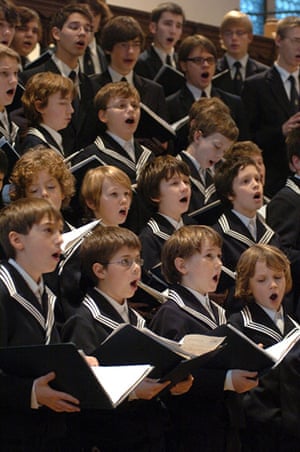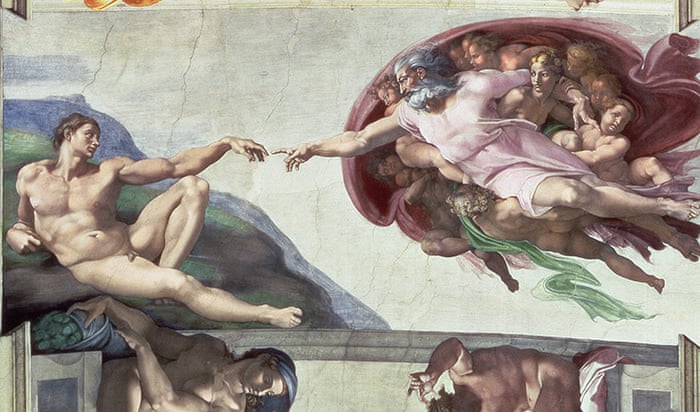Abandoning Liturgical Music
"Some parishes may not have music at all, some parishes may just have a single singer.""It would be rare to see large choirs singing because the challenges to ensure the physical distancing amongst the instrumentalists and the choir members is very difficult and not practical in most parishes.""It's going to be strange. Music is part of it [church attendance] for many people.""Parishes will be encouraging people to come in, participate in mass and then head out because we're going to have to clean and sanitize the churches between masses.""It's going to be very different from what people are accustomed to."Neil MacCarthy, director, public relations and communications, Archdiocese of Toronto
 |
| Vicar's Choral, Wells Cathedral Choir |
People's accustomed habits, the way business is conducted, school and work attendance, urban transit, entertainment, sport events, all that the modern world has known and taken for granted, in one fell swoop, with the introduction to an unready world of a viral and deadly infectious pathogen, has suddenly become unfeasible. Civil life, humanity itself has had to undergo a massive transition from trust to distrust. We can no longer safely be spontaneous in our reactions, we can no longer assume ourselves to be safe from a destructive virus.
It stands to reason that the globe's most fundamentally important ritual to an immense segment of any population; gathering in a house of worship to give praise to an Almighty Spirit of Creation, and in the process plead with that omnipotent being to remove the most recent destabilizing curse that an evil force has wrought, must now, given the circumstances of lockdown and social distancing government orders worldwide cautioning care against infection, think of church attendance in a different way.
 |
| Hans Memling Christ with Singing and Music-Making Angels |
Churches, like business enterprises and manufacturing and social service groups must now re-imagine its openness and presentation to worshippers. No longer can it be feasible, in the absence of a safe and viable antidote to the SARS-CoV-2 virus causing COVID-19, for people to innocently gather in large groups to share their faith. No longer will the celebration of faith include the sublime music that has traditionally lifted hearts and souls.
In Canada, churches are struggling to inform their parishioners how they may continue to worship that Supreme Being somewhat traditionally, but with quite profound differences to minimize physical contact with a view of protecting people from bodily contamination by the novel coronavirus. In Ontario, according to Mr. MacCarthy, the distribution of a limited number of seats in a fair manner now challenges the coordinators of church activities.
Being considered are various scenarios, including online reservation systems. Yet worryingly, if some churchgoers are not comfortable with modern technology they will be excluded. Tellingly, that would be the older church-going demographic, unfamiliar with computers and the Internet, while at the same time representing the most infection-susceptible group in the public to the novel coronavirus, and suffering the absolute worse consequences in greater numbers.
There have been incidents to forewarn of what can occur with the gathering of worshippers in the first wave of COVID with outbreaks in church choirs and in the church congregations themselves. In early March in Washington State, dozens of choir members contracted the virus and two among them died. In another instance, 59 people in a 78-member choir in a Berlin cathedral contracted COVID-19.
_2_556_322_c1.jpg) |
| Monteverdi Choir, Beethoven |
The National Association of Teachers of Singing in the U.S. gave a webinar on "the near-term future of singing", outlining just how bleak that future appears. The reasons are obvious enough; as when singing droplets are emitted from the mouth and nose. Large groups of people practise in a choir in limited spaces, while sheet music and file folders are passed from person-to-person. Singing in a group when members of that group are likely to touch their faces, hits all the wrong notes.
Hereafter, church-goers will have to accustom themselves to wearing face masks at church, where after a mass is celebrated and the church emptied of worshippers, the entire interior of the church must be cleansed and sanitized before another service is held. California urges churches to no longer feature choirs and to hold shorter services where places of worship will limit themselves to 25 percent capacity or 100 people attending, whichever is the lesser number.
 |
Catholic churches represent a full range of capacities, from intimate with no more than a hundred seats, to massive cathedrals such as St.Michael's in Toronto, where 1,200 can be seated. Weddings in Ontario are now restricted to five attendees, inclusive of the officiant, while funerals are permitted no more than ten people in attendance. And nor may church-goers gather in parking lots or church lobbies, for the safe distance from one another must be upheld.
As for the collection plate; no longer will they be distributed at the finalization of a sermon before people leave the pews. Other means of supporting the church financially are to be explored, and all roads appear to converge on the Internet.

Labels: Church Choirs, Church Liturgy, Sacred Music, Social Distancing

0 Comments:
Post a Comment
<< Home